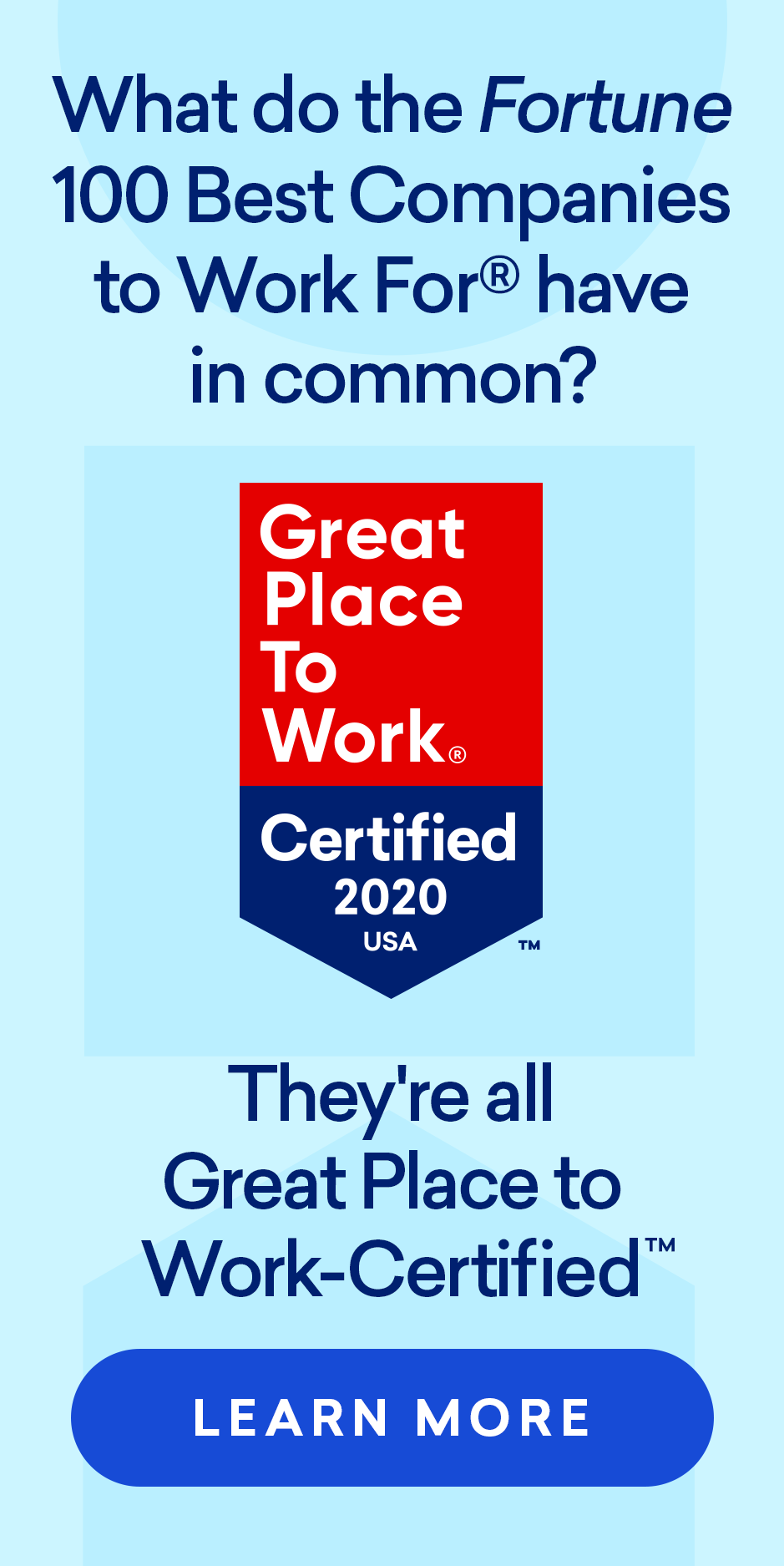People that bring 100% to work give 100% to their work
The days of leaving your personal life at the company doorstep are over. Frankly, the concept never really worked in the first place. We can’t expect to get 100 percent from people if only 50 percent is allowed to show up to work. 
During this year's Great Place to Work Conference in Dallas, a common theme emerged about allowing employees to bring their whole selves to work. Organizations realize that employees should not have to separate their personal and professional lives. More importantly, senior leaders realize the way to attract, engage and retain talent involves building a culture that encourages employees to bring their whole selves to work.
Why employee engagement is important
We talk about employee engagement all the time but do we truly know what it means? It's not about employee happiness, although that is important. The best definition I've found describes employee engagement as the "intersection of maximum contribution for the business and maximum satisfaction for employees." It draws the connection between employee satisfaction with their work and employer to their productivity and organizational results.
A quick Google search will reveal that employee disengagement is a real challenge for businesses. We don't really need to spend time debating whether or not disengagement exists. There are a variety of causes: employee burnout, dissatisfaction with compensation and benefits, and lack of career opportunities just to name a few.
To create an engaged workforce, organizations need to understand the reasons disengagement might exist as well as what it takes for employees to become engaged. They're two separate things. Reducing disengagement doesn't automatically increase engagement. 
Common sense isn't always common practice
To create an engaged workforce, employees need to feel truly connected to the business. That will never happen if employees only bring a piece of themselves to work. It might sound flip to say, but what if employees leave the part of themselves they need to become engaged at the "company doorstep"? Organizations run the risk of employees having a piece of themselves that's detached from their work.
One could argue that this is common sense. But remember, for years organizations have told employees to leave their personal lives at the door when they arrive to work. Or managers tell employees to quit chatting about personal stuff and focus on work. Today, organizations understand these are examples of how employees are prevented from bringing their whole selves to work.
The key to encouraging employees to bring their whole selves to work is to incorporate well-being into organizational culture
David Lissy, CEO of Bright Horizons and Danroy T. Henry, Sr., CHRO at Bright Horizons feel that allowing employees to bring their whole selves to work is what makes their culture unique. It not only helps with engagement, but it helps them attract and retain the best talent for their organization.
It starts with building trust
As Lissy and Henry point out, bringing your whole self to work isn't a corporate program. It's a mindset that permeates the culture. It happens because trust exists at every level of the organization.
Here's data from this year's 100 Best Companies to Work For to back it up: If you look at the 58 items on the Great Place to Work Trust Index©, the statement, "Management cares about me as a person, not just an employee" is the most highly-correlated to the overall Best Companies survey statement, "Taking everything into account, this is a great place to work."
Translation: When employees get to bring their whole selves to work, they value the company they work for.
To make the transformation involves trust. In the Great Place to Work® Trust Model©, this falls squarely in the Respect dimension, which is a cornerstone of Trust. Organizations must change their mindset from "having employees who do the work" to "having people who do the work." Employees only bring a piece of themselves. People bring their whole selves.
Mutual responsibility exists with well-being
While organizations will be responsible for creating cultures that support bringing the whole person to work, individuals must learn how to maintain it. In the past, companies have drawn that line in the sand for employees: "Leave personal stuff outside." and "Only talk about work." Now employers must say, "I trust you to get things done." Individuals need to be ready to accept both responsibility and accountability for results.
For individuals, learning how to embrace and maintain well-being involves self-awareness and self-management skills. Organizations cannot simply say, "Voila! You can bring your whole self to work now." Training to give individuals the tools in areas such as problem-solving, career development and change management set the stage for success.
To make it happen, make it a priority
Engagement is the responsibility of both organizations and individuals. Mutual trust is the foundation. Trust that the organization will make bringing our whole self to work a priority. Trust that managers will encourage and support bringing our whole selves to work. Finally, trust that employees will hold themselves responsible and accountable for maintaining personal and professional well-being.
Sharlyn Lauby is an author, writer, speaker and consultant. She has been named a Top HR Digital Influencer and is best-known for her work on HR Bartender, a friendly place to talk about workplace issues. Sharlyn recently published her first book, “Essential Meeting Blueprints for Managers,” which is available on Amazon. And her personal goal in life is to find the best cheeseburger on the planet.















